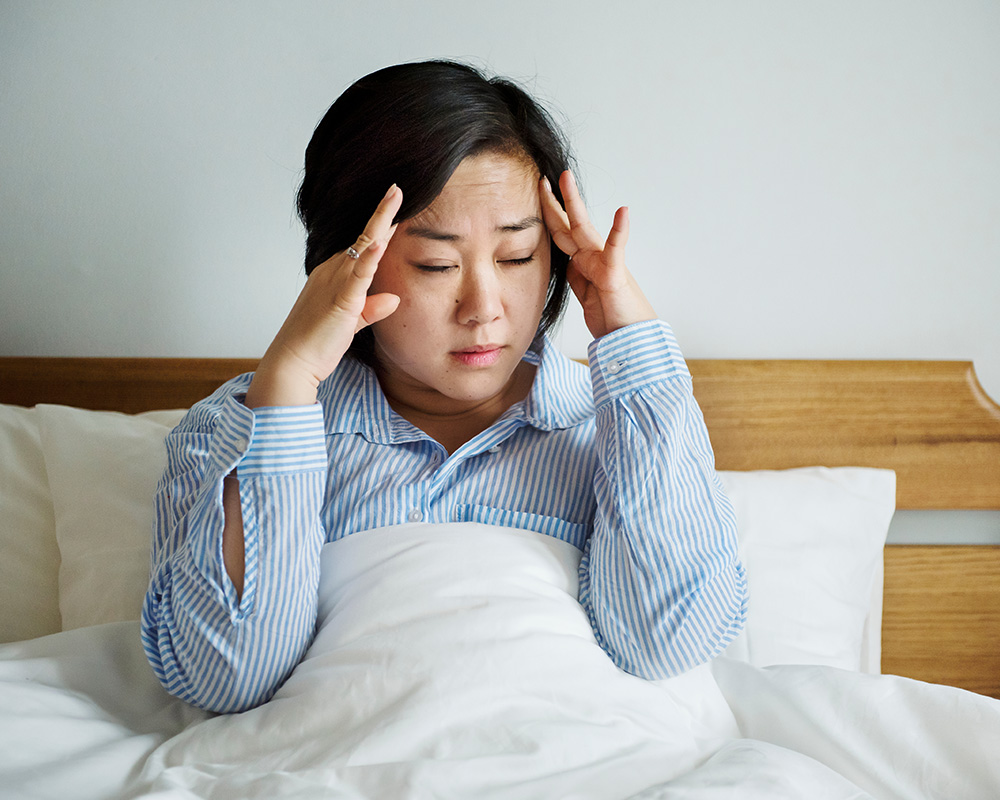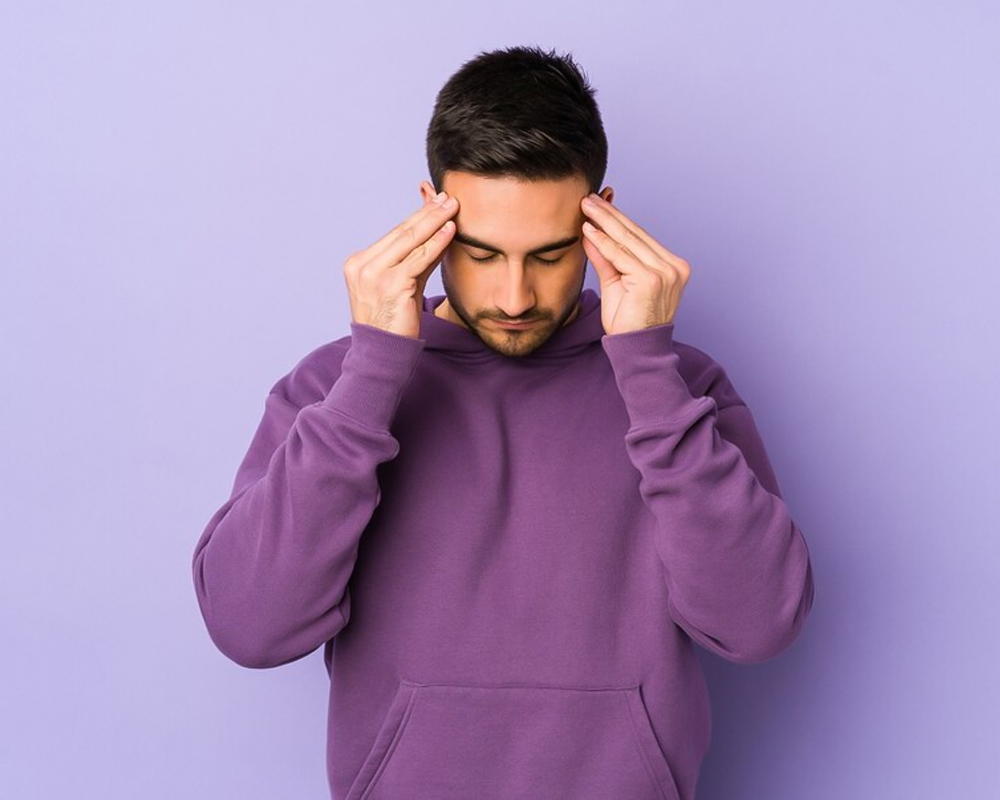Introduction
Did you know that your stress or anxiety can interfere with your sleep? Yes, there is a term for this condition: Psychophysiological Insomnia. Psychophysiological insomnia is a type of chronic insomnia that includes issues with falling or staying asleep. This is due to stress, anxiety, and heightened bodily and cognitive arousal.
Let’s explore more about this Psychophysiological insomnia, its symptoms, and others in this guide.
What is Psychophysiological Insomnia?
Insomnia is a common condition affecting around 1-2% of the general population globally. While most of the people are familiar with the general term “insomnia,” few understand the specific causes and types. One unknown type, known as psychophysiological insomnia, is characterized by stress and anxiety.
This insomnia is a sleep disorder where mental and emotional factors interfere with normal sleep. People suffering from this condition struggle with falling asleep or staying asleep. Moreover, the most common mental conditions linked to this disorder are stress and anxiety. Unlike other forms of insomnia, psychophysiological insomnia arises when a person becomes excessively worried about their inability to sleep. This creates a cycle where sleep anxiety prevents restful sleep, leading to chronic sleep disturbances.
This type of insomnia differs from primary insomnia, which is not linked to any specific underlying health condition. On the other hand, psychophysiological insomnia is heavily influenced by psychological stress. This type of insomnia often worsens with time, especially if the individual’s stress levels remain high.
How Does this Insomnia Develop?
The first culprit is stress. It might get triggered by an event or situation. It may be a work deadline, relationship problems, or even general life stress. When people experience anxiety about these situations, their bodies react by releasing stress hormones like cortisol. This can interfere with sleep, making it difficult to fall asleep or stay asleep.
The long-term effects of this are very disturbing. If a person continues to worry about their sleep, a pattern develops. They mix going to bed with stress and anxiety. The sleeplessness cycle is heightened by this negative conditioning. Moreover, the problem gets worse the more someone thinks about their difficulty sleeping.
Additionally, the mind-body connection plays a central role in psychophysiological insomnia. Stress doesn’t just affect our emotions; it impacts our physical well-being as well. The body tenses up and makes it harder to relax enough to sleep. Moreover, as the anxiety grows, the body’s ability to unwind and rest becomes less and less. It further aggravates the issue.
Effects of Psychophysiological Insomnia
This insomnia affects not only sleep but also mental and physical health. Sleep is linked to every task you perform daily. Sleeplessness can impact your entire body and lead you to further depression and anxiety. As sleep deprivation continues, it may become harder for individuals to cope with stress, leading to even more anxiety.
Similarly, physical health is equally important. Sleep is essential for the body to maintain a healthy immune system. So, less sleep leads to a weakened immune system. Less sleep makes your body more vulnerable to illnesses. Sleep deprivation can lead to an increased risk of chronic health conditions like high blood pressure, diabetes, and heart disease.
Psychophysiological Insomnia Symptoms
As in any type of insomnia, the symptoms are similar. However, there is a hallmark difference that enables physicians to catch this specific insomnia easily, i.e., getting anxious about trying to sleep. This associated stress or anxiety can lead to a constant cycle of getting anxious and further increasing stress and anxiety.
Harris pointed out:
As bedtime approaches at home, someone may feel more anxious and have intrusive thoughts or sleep-related concerns. On vacation, however, they can fall asleep more readily and do not suffer from the same levels of anxiety or sleep-related concerns.
Talking about Psychophysiological insomnia symptoms, they should show up at least three nights per week for around three months. The symptoms might include:
- only sleeping for a short amount of time
- waking too early in the morning
- poor quality of sleep
How Do I Overcome This Insomnia?
Understanding this disease is the first step to overcoming it. Insomnia sufferers experience something like performance anxiety when they go to bed and try to fall asleep. This is the same type of anxiety that people receive when they step onto a stage in the dark or when they go to their first job interview. It might be close, but perhaps not that horrible.
As the primary insomniacs spend most of their day worrying about the after-effects of not getting enough sleep, Moreover, the brain confuses bedtime with showtime. With time, the mind labels bedtime as a threat and puts the body on high alert instead of forgetting it.
What are the Types of Insomnia?
Insomnia may be of two types:
- Primary insomnia
- Secondary insomnia
Insomnia that cannot be linked to a medical or psychological condition is referred to as primary insomnia.
Secondary insomnia, on the other hand, is brought on by real illnesses that keep people up at night, such as sadness, sleep apnea, or chronic pain.
Treatment Options for This Insomnia
Thankfully, psychophysiological insomnia is treatable. One of the most effective methods for treating this condition is Cognitive Behavioral Therapy for Insomnia (CBT-I).
CBT-I is a structured program that helps individuals identify and change the thoughts and behaviors that contribute to their insomnia. Addressing the root causes, such as anxiety or negative sleep associations, CBT-I can help individuals regain control of their sleep patterns.
Relaxation techniques can also help manage insomnia. Deep breathing exercises, progressive muscle relaxation, and mindfulness meditation can help calm the mind and body. Moreover, these techniques are particularly beneficial when used before bedtime to create a sense of calm and readiness for sleep. Thus, it helps reduce anxiety attacks before going to bed and calms your mind.
Additionally, improving sleep hygiene is another key component of treating this insomnia. Simple lifestyle changes can promote better sleep. This includes creating a proper and consistent bedtime routine, keeping the bedroom dark and quiet, and avoiding screens before bed. Moreover, reducing caffeine intake in the afternoon and evening can also help.
When to contact a doctor?
If you feel anxious before going to sleep for some consecutive time or have difficulty falling asleep or staying asleep, you should contact a reliable sleep physician and get an early hands-on treatment.
Conclusion:
To conclude, psychophysiological insomnia can be challenging to manage. If you feel anxious or stressed before going to bed, you might be suffering from this condition. With the right tools and strategies, this condition is treatable.
Additionally, if you want to consult a reliable sleep and mental health physician in Texas, Eximious is your go-to platform. Our team of experts provides you with the utmost support and also provides remote sleep monitoring.




